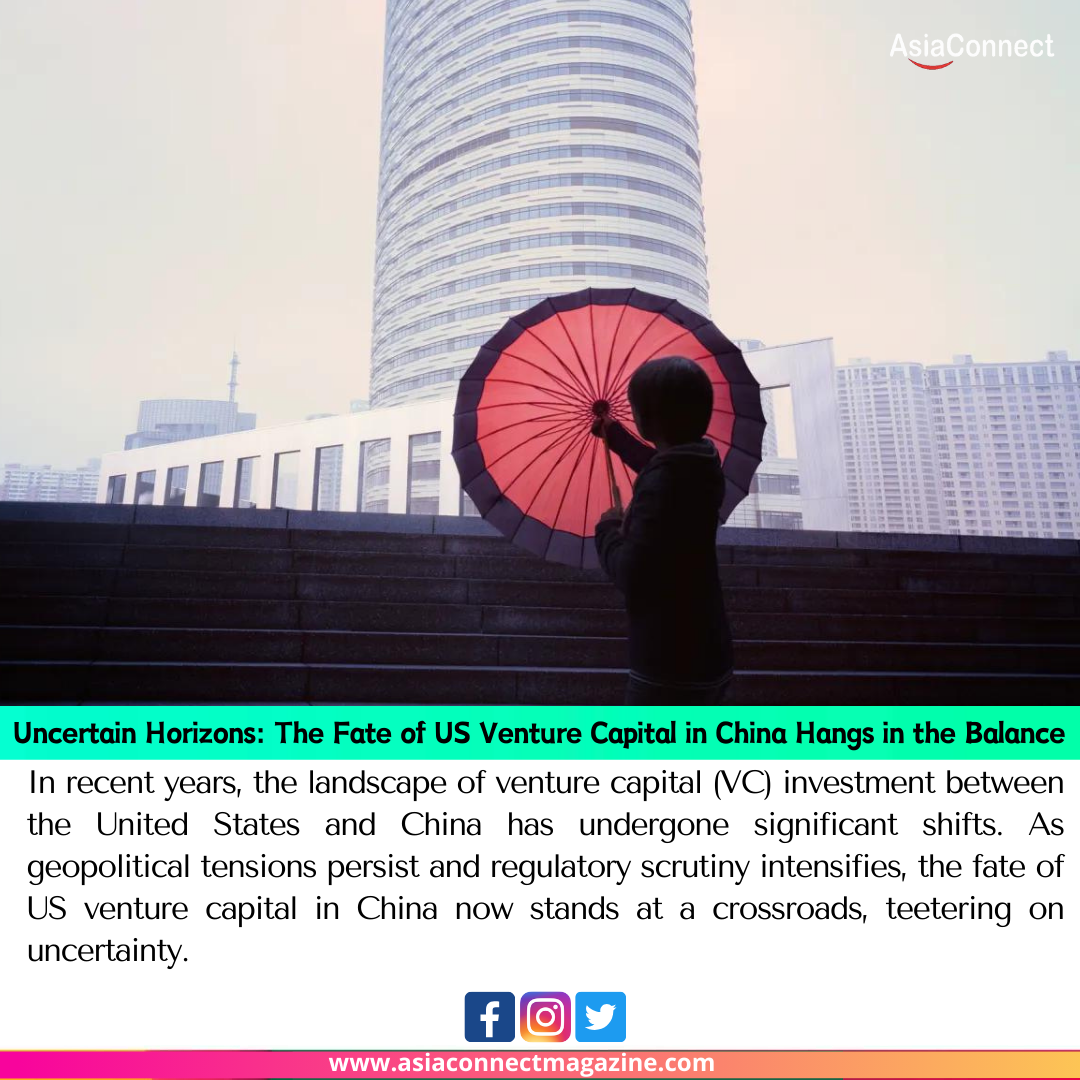In recent years, the landscape of venture capital (VC) investment between the United States and China has undergone significant shifts. As geopolitical tensions persist and regulatory scrutiny intensifies, the fate of US venture capital in China now stands at a crossroads, teetering on uncertainty.
Changing Dynamics and Geopolitical Tensions
The once-thriving relationship between US venture capital firms and Chinese startups has been shaped by a complex interplay of economic dynamics and geopolitical forces. The rising tensions between the US and China have cast a shadow over this relationship, with regulatory uncertainties and policy changes adding layers of complexity to cross-border investments.
Regulatory Scrutiny and Compliance Challenges
Regulatory scrutiny has become a focal point, impacting the strategies and decisions of US venture capital players eyeing investments in China. Chinese authorities have implemented measures to enhance oversight and tighten regulations on various industries, creating compliance challenges for foreign investors. The ever-evolving regulatory environment introduces an element of unpredictability that influences investment sentiments.
Tech Sector Turbulence
The technology sector, which has been a focal point for many venture capital investments, is undergoing significant turbulence. Increased regulatory measures targeting tech giants in both the US and China have created uncertainties about the future of these investments. Concerns about data security, antitrust issues, and technology transfer have further complicated the landscape for venture capitalists navigating the US-China relationship.
Impact of Delisting Threats
The threat of delisting Chinese companies from US stock exchanges has added another layer of uncertainty for venture capital firms. The Holding Foreign Companies Accountable Act, signed into law in the US, requires companies to comply with audit inspections, potentially leading to delisting if they fail to meet these requirements. This has triggered evaluations and reassessments of existing investments and future considerations for venture capitalists.
Navigating Economic Nationalism
Economic nationalism, driven by both the US and Chinese governments, adds to the uncertainty surrounding venture capital activities. The emphasis on self-reliance and protection of national interests has implications for cross-border investments, prompting venture capitalists to reevaluate their portfolios in the context of changing geopolitical and economic narratives.
Emerging Opportunities Amid Challenges
Amidst the challenges and uncertainties, there are emerging opportunities that venture capitalists are keen to explore. Certain sectors, such as clean energy, biotechnology, and advanced manufacturing, present avenues for collaboration that align with evolving global priorities. Navigating these opportunities, however, requires a nuanced understanding of regulatory landscapes and geopolitical sensitivities.
Strategic Adaptations by Venture Capital Firms
Venture capital firms are responding to the uncertain environment with strategic adaptations. Some are diversifying their portfolios to include investments in other regions, seeking a balance that mitigates risks associated with concentrated exposure to the US-China dynamic. Others are engaging in closer dialogue with regulators and policymakers to proactively address compliance concerns and shape the regulatory discourse.
Conclusion: A Pivotal Moment for US Venture Capital in China
The fate of US venture capital in China is at a pivotal moment, shaped by a confluence of geopolitical, regulatory, and economic factors. As venture capitalists navigate these uncertain horizons, strategic foresight, adaptability, and a nuanced understanding of the evolving dynamics will be essential. Whether the current uncertainties lead to a recalibration or a renaissance in US-China venture capital relations remains to be seen, but the landscape is undoubtedly undergoing a transformative shift that will shape the future of cross-border investments.





